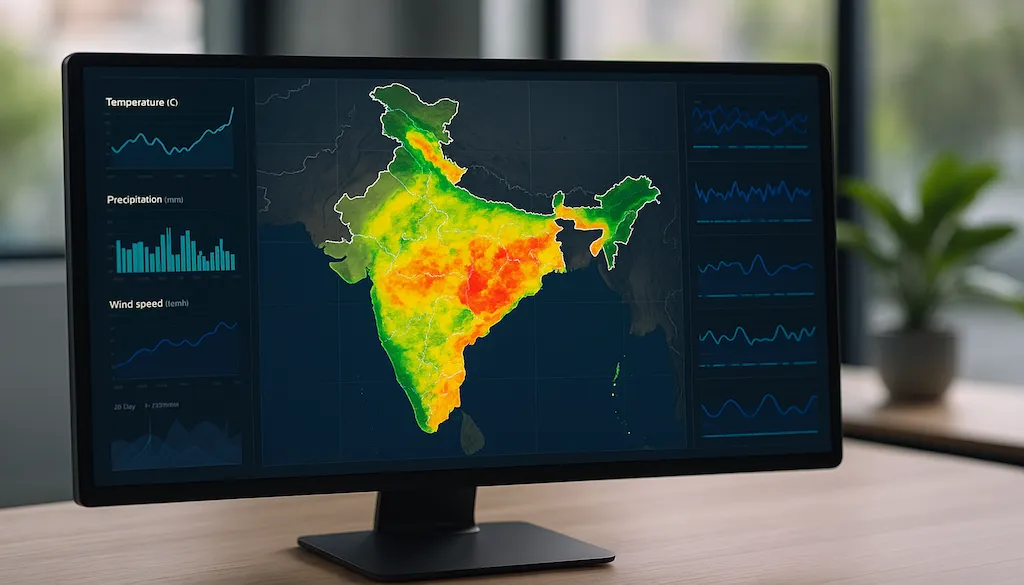Friends and relatives have asked me Is cybersecurity a good career option more times than I can count in the more than ten years that I have been employed in the field. It's clear that individuals have an interest in entering this industry given the constant headlines about hackers, data breaches, and businesses rushing to protect themselves. I would want to share my thoughts and experiences today to help you choose if cybersecurity is the right career path for you. I hope this post clarifies what cybersecurity actually means, if you're a student exploring your options, a job seeker, or simply curious!
Is Cybersecurity A Good Career Choice for Today's Job Market?
The short answer? Yes! Cybersecurity continues to be one of the most promising career fields in 2025. Let me break down why The demand for cybersecurity professionals keeps growing every year. The demand of those who can safeguard digital assets grows as more aspects of our lives and firms operate online. Businesses of all sizes becoming realize that cybersecurity is crucial and not a choice.
Here are some quick facts that show why cybersecurity remains a solid career choice:
- Frequently, there are more job openings than there are capable applicants to fill them.
- Relative to many other IT sectors, cybersecurity roles continue to pay more on average.
- The field offers great job security (cyber threats aren't going away!)
- You can find work in virtually any industry or location
- There are many different paths and specializations to explore
It is not an ideal job for everyone. Let's go further to see whether it's a good fit for you.
What Exactly Do Cybersecurity Professionals Do?
Knowing what the work entails is helpful before choosing if cybersecurity is a good career choice for students or career changers. There are several duty within the subject of cybersecurity, therefore it's not just one profession. Security engineers create safe applications, security analysts keep an eye on networks for illicit activity, and penetration testers focus on testing systems for flaws.
Here are some common cybersecurity jobs:
- Security Analyst: Monitors systems for threats and responds to incidents
- Penetration Tester: Tries to hack into systems (legally!) to find vulnerabilities
- Security Engineer: Builds and maintains secure systems and networks
- Security Architect: Designs security structures for organizations
- Compliance Specialist: Ensures systems meet legal and regulatory requirements
- Security Consultant: Gives firms security practice advice.
A typical day may include changing security tools, reading about new threats, analyzing systems, checking alarms, or instructing others on security best practices. There is always a new issue to tackle at work, therefore there is never a dull time! The best thing about my work is that!
Is Cybersecurity A Good Career Choice for Financial Stability?
Although it's not everything, money does matter! The possibility of high pay is one of the main attractions for jobs in cybersecurity. Professionals in cybersecurity, in my experience, usually make more money than those in many other computer positions. While entry-level incomes typically range from $60,000 to $80,000 per year, skilled workers can earn well over $150,000. Some high-level CEOs and professional consultants make above $200,000.
Beyond the base salary, many roles offer:
- Generous benefits packages
- Performance bonuses
- Opportunities for overtime pay during incident response
- Training stipends for continued education
I recall beginning my career at about $65,000, and as I built up skills and skills, my pay doubled in only five years. One of the best things about picking this area has been the financial stability.
Growing Demand: Why Cybersecurity Remains Hot in 2025
One simple explanation for the ongoing growth in the cybersecurity employment market is the constant evolution and spread of cyberthreats. Security issues arise with every new technology. The rise of AI has created whole new categories of threats. Internet of Things (IoT) devices have expanded attack surfaces. Cloud computing has changed how we need to think about security.
All this means organizations need skilled professionals more than ever. I've observed that cybersecurity positions stay steady even during recessions. Because the costs of ignoring security are too great, security frequently stays a top priority when businesses reduce their costs.
Some industries with particularly strong demand include:
- Healthcare
- Finance
- Government
- Critical infrastructure
- Tech companies
My talks with hiring managers and recruiters show that this desire isn't going to go away anytime soon.
Is Cybersecurity a Good Career for Beginners With No Experience?
One of the most frequent queries I see is whether someone without any previous work in cybersecurity can succeed in the industry. The honest answer is that it can be challenging but is definitely possible. Many of the best security professionals I know came from completely different backgrounds - from teaching to retail to military service.
Here's why beginners can succeed in cybersecurity:
- The field values problem-solving skills and curiosity more than specific credentials
- Many core concepts can be learned through self-study and practice
- There are more entry-level positions available than in previous years
- Employers increasingly offer training programs for promising candidates
I started with a passion for tech and an aptitude to spot possible issues, but no formal cybersecurity training. I started out in IT support and advanced through online classes and on-the-job training. If you're a beginner interested in cybersecurity, here are some paths that have worked for many people:
- Start in general IT or help desk roles to build foundational knowledge
- Earn beginner-friendly certifications like CompTIA Security+
- Build hands-on skills through home labs and practice environments
- Volunteer for security-related tasks in your current job
- Make contact with industry experts.
The Learning Curve: What Skills Do You Need?
Cybersecurity success needs lifelong learning. Keeping up to date is part of the work because the industry is changing quickly. These abilities, in my opinion, are needed for a job in cybersecurity:
Technical Skills
- Networking fundamentals
- Operating system knowledge (Windows, Linux)
- Basic programming/scripting abilities
- Understanding of security principles and tools
- Knowledge of common vulnerabilities and attacks
Non-Technical Skills
- Problem-solving and analytical reasoning
- Clear communication (explaining technical issues to non-technical people)
- Attention to detail
- Persistence and patience
- Ethical judgment
Many newcomers are shocked to learn how crucial such non-technical talents are. Technical skill is just as important as the ability to properly express results to management or educate staff on security awareness. While others with between expertise flourish due to their exceptional communication skills, I have witnessed amazing engineers suffer because they are unable to express security topics in easy words.
Education Paths: Degrees, Certifications, or Self-Teaching?
One thing I love about cybersecurity is that there's no single "right" educational path. I've worked alongside successful professionals with:
- Four-year computer science degrees
- Two-year technical degrees
- Career-changer boot camp graduates
- Self-taught enthusiasts with certifications
- Former military personnel with security training
While degrees can help, certifications often carry more weight in cybersecurity. Popular certifications include:
- CompTIA Security+, which is excellent for novices
- Ethical Hacker Certified (CEH)
- Professional Degree in Information Systems Security (CISSP)
- Manager of Certified Information Security (CISM)
- Certified Professional in Offensive Security (OSCP)
I often assign more weight to documents and practical experience than degrees when recruiting. Building one's own home lab, competing in capture-the-flag events, or developing open-source security solutions are examples of practical skills that are not necessarily provided by typical schooling.
Work-Life Balance in Cybersecurity: What to Expect
Let's talk about balancing work and life, a vital topic that is rarely addressed in job marketing. Schedule needs of cybersecurity positions vary greatly, in my experience:
- Security Operations Center (SOC) analysts frequently work weekends and evenings.
- For crises, incident responders could be available.
- Consultants might travel frequently to client sites
- Policy and compliance roles typically offer standard business hours
During major security incidents, long hours are common. I once worked 20 hours straight during a ransomware attack. But these intense periods are usually balanced by more normal workdays. The good news is that a lot of cybersecurity positions now provide choices for remote work and other forms of flexibility. I moved to a largely remote job after the epidemic, which greatly improved my quality of life. Ask specific questions regarding on-call requirements, regular hours, and the company's handling of major events during job interviews if you value work-life balance.
Disadvantages of Working in Cyber Security: The Honest Truth
While I love my career in cybersecurity, it's only fair to share some of the challenges:
Stress and Pressure
Security professionals often carry significant responsibility. It might be stressful to know that you're securing important systems or sensitive data. The pressure may be quite high when things happen.
Continuous Learning Requirement
It might be draining to always have to keep up with emerging risks and advances in technology. In six months, what you know now might not be relevant.
Alert Fatigue
Monitoring alarms is a common part of security jobs, which may get dull and difficult. False positives are frequent and can cause "alert fatigue."
Explaining the Value
Sometimes it's hard to demonstrate the value of security work. Nothing negative occurs when everything works as it should, which might make it hard to show your effect.
Ethical Dilemmas
Security experts may have to deal with difficult ethical issues related to risk disclosure, privacy, and tracking. I recall a particularly trying week when, right before a product launch, we found a major security issue. The firm would lose millions if the launch delayed, but there were risks too. It may be hard to make such major decisions. In spite of this, I, along with the majority of cybersecurity experts I know, find my work to be enjoyable. Knowing what you're doing and creating plans to address the obstacles are essential.
Cybersecurity Career Paths: Where Can You Go?
The range of job paths available to you is one of the nicest things about beginning in cybersecurity. Over the years, I've witnessed colleagues take strange turns.
Here are some common career progressions:
Technical Specialist Track
- Junior Security Analyst → Senior Analyst → Security Engineer → Security Architect
Management Track
- Security Analyst → Team Lead → Security Manager → CISO (Chief Information Security Officer)
Consultant Track
- Security Analyst → Consultant → Senior Consultant → Practice Lead
Specialized Paths
- Penetration Tester → Red Team Specialist → Red Team Lead
- Incident Responder → Digital Forensics Specialist → Forensics Director
- Security Analyst → Threat Intelligence Analyst → Threat Intelligence Director
The field also offers entrepreneurial opportunities. Several of my former colleagues have started security consulting firms or developed security products. I started as a general IT support technician, moved into a security analyst role, specialized in threat hunting, and eventually became a security architect. Each step built on my previous experience while teaching me new skills.
Getting Your First Cybersecurity Job: Practical Tips
Although breaking into cybersecurity may seem difficult, it is still doable with the correct strategy. What worked for me and several people I've coached is as follows:
Build a Foundation
Start with IT basics if you're completely new to technology. Understanding networks, operating systems, and basic programming provides essential context for security concepts.
Get Hands-On Practice
Create a home lab with virtual computers to practice safety measures. Participate in platforms such as Hack The Box, Try Hack Me, and Cyber Defenders to tackle actual tasks.
Earn a Beginner-Friendly Certification
CompTIA Security+ is widely recognized as a good starting point. It covers fundamental security concepts without requiring years of experience.
Network with Professionals
Join local cybersecurity meetups, attend conferences (many have student rates), and connect with professionals on LinkedIn. Personal connections often lead to job opportunities.
Look for Entry Points
Consider roles like:
- Junior Security Analyst
- SOC Analyst (Tier 1)
- IT Support with security responsibilities
- Security Administrator
- Compliance Analyst
Highlight Transferable Skills
If you're changing careers, emphasize skills from your previous work that apply to security:
- Problem-solving abilities
- Communication skills
- Detail-orientation
- Project management experience
- Customer service experience (useful for security awareness training)
Create a Portfolio
Document your learning projects, write about security topics, or contribute to open-source security tools. This shows initiative and practical skills, even without formal work experience. I decided to assist with security duties at my IT support job, which led to my first security-related position. Those skills, close with my Security Plus certification, enabled me to transition into a security-focused work.
Is Cybersecurity a Good Career Choice for Work-From-Home Opportunities?
Many cybersecurity teams' methods of operation were forever changed by the epidemic. Remote work has become much more common in the field, which is great news for work-life balance.
In my experience, these cybersecurity roles often offer remote options:
- Security analysts
- Vulnerability management specialists
- Security engineers
- Threat intelligence analysts
- Security consultants
- Security writers/trainers
Some roles still require on-site presence, particularly those involving physical security systems or secure facilities. But the field that has embraced remote work the most is cybersecurity, in contrast to many others. My quality of life has risen significantly over the last few years as a result of working remotely. I can design a unique office that improves my attention and avoid a lengthy journey thanks to the flexibility. If remote work is important to you, ask specifically about remote policies during job interviews. Some companies offer fully remote positions, while others use hybrid models.
The Future of Cybersecurity: Emerging Fields to Consider
When deciding if cybersecurity is a smart career option, it's important to evaluate the path that the industry is taking. Among the exciting areas for growth are:
AI Security
Emerging specialties involve protecting AI systems and applying AI for security as the technology becomes more widely used. In order to identify odd network patterns that human analysts might overlook, I've been working on projects that use machine learning.
Cloud Security
With more organizations moving to cloud environments, specialists who understand cloud security architectures are in high demand. Cloud security requires different approaches than traditional network security.
IoT Security
As they link vital systems to networks, Internet of Things devices pose new security risks. IoT security experts assist in preventing smart medical devices and industrial controls from serving as points of access for hackers.
Privacy Engineering
Privacy experts assist businesses in securing personas while keeping to the law in light of the growing number of data privacy rules (such as the CCPA and GDPR).
Supply Chain Security
The value of protecting software supply chains has been brought to light by recent significant breaches. Assuring the security of every component during the creation and use of software is the main emphasis of this new expertise. I've found that following these trends and developing my skills in modern sectors have opened up fresh chances for me throughout my career.
Final Thoughts: Is Cybersecurity a Good Career Choice for You?
After working in this industry for over ten years, I can honestly say that while cybersecurity is a great career choice for many people, it's not for everyone.
It's likely a good fit if you:
- Enjoy solving puzzles and technical challenges
- Are comfortable with continuous learning
- Can handle some pressure and responsibility
- Have strong attention to detail
- Are interested in how systems work and how they can break
It might not be ideal if you:
- Prefer stable, unchanging work environments
- Want to learn a skill once and use it unchanged for years
- Dislike technical topics entirely
- Need extremely predictable work hours with no exceptions
I would answer "yes" to students who are unsure about if cybersecurity is a suitable career choice for students since getting started early allows you to gain basic abilities and experiment with several specialties before settling on one. Asking whether cybersecurity is a decent job for beginners may be difficult yet beneficial for those looking to change careers. You probably have useful transferable abilities from your prior employment. Keep in mind that cybersecurity is a broad subject with places to suit a variety of personalities and skill sets. The creative penetration tester, the analytical threat hunter, the people-focused security trainer, and the policy expert with an eye for detail may all find a place.













